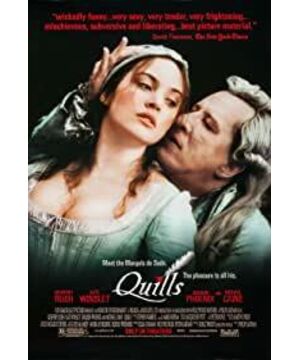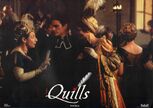Marquis's novels are actually very close to life, such as satirizing the old doctor's bondage of young nuns. The novel satirizes the doctor because he is sexually impotent to satisfy the women around him in other material ways. In order to keep the woman's loyalty to him, he built a golden bird cage to trap her in a luxurious mansion.
To some extent, his thirst for writing is a disclosure of truth, a release of freedom.
It's just the meaning of the washerwoman's murder that entangles me. The female worker is enlightened because of his erotic novels, the nun bravely pursues freedom because of his exposure to men and women, and the female worker's death is also because of his novels, because he provokes desire. , an irrepressible, violent impulse. Although the Marquis explained her death by a helpless coincidence, he cried when he learned that she was still a virgin. We say that the meaning of tragedy is to destroy beautiful things for the world to see. Perhaps the death of the female worker is to wake up.
Doctors, who treat mental patients with violence, are hypocritically motivated by profit, and shamelessly revenge. The ironic end is that he begins to develop the asylum into a printing press for Marquis erotica. A complete villain.
The image of the priest is hesitant, the desire for love is restrained to sublimation, and the criticism of the marquis is saved to inheritance. The mental hospital full of artistic expression under his leadership is an ideal. And perhaps the most sober is the lunatic locked up in the depths of the mental hospital.
View more about Quills reviews











